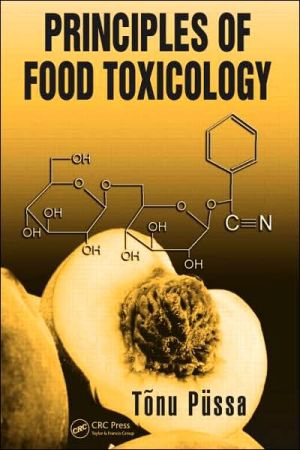

 |

|

Sold Out
Book Categories |
BASICS OF TOXICOLOGY CONNECTED TO FOOD Introduction What is Toxicology?
Short History of Toxicology Dose and Response Interactions of Toxic Substances Classification of Toxicants Some Toxicology-Related Principles of Cellular Biology and Biochemistry
Routes of Xenobiotics in Organism Entry and Absorption of Foreign Compounds Distribution of the Xenobiotics in the Organism Metabolism of Xenobiotics Elimination of Xenobiotics and/or Metabolites from Organism Biomagnification Antidotes
Toxic Response Variability of Toxic Response Types of Toxic Response Molecular Mechanisms of Toxicity Biomarkers of Toxic Effect
Analytical Toxicology Determination of Foreign Compounds General Principles Hyphenated Chromatographic and Spectrophotometric Methods Immunological Methods for Sample Preparation and Analysis
Evaluation of Toxicity of Substances Epidemiological Studies Animal Tests Cell Culture Tests Computer Calculations Acute Toxicity Tests Subacute/Chronic Toxicity Tests Chronic Toxicity Tests; Acceptable Daily Intake Other Toxicity Tests
Toxicological Safety and Risk Analysis Toxicological Safety Risk Assessment
Internet Sources of Toxicological Information
MAIN GROUPS OF FOOD-BORNE TOXICANTS Endogenous Plant Toxicants Lectins or Hemagglutinins; Ricin Enzyme Inhibitors Alkaloids Cyanogenic Glucosides; Toxicity Mechanism of HCN Phytoestrogens Glucosinolates Coumarin Thujones Anisatine Toxic Amino Acids Toxic Lipids Oxalates Fluoroacetates Bracken toxins Saponins Grayanotoxin Mushroom Toxins
Geochemical Pollutants that a Plant Assimilates from Soil Arsenic Selenium Fluorine
Environmental Pollutants Toxic Chemical Elements Radionuclides Polychlorinated Biphenyls (PCB)
Polychlorinated Dibenzodioxins and Dibenzofurans
Mycotoxins Overview Aflatoxins Ochratoxins Sterigmatocystin Zearalenone Fumonisins Trichothecenes Patulin Citrinin and Citreoviridin Ergot Toxins Other Mycotoxins Combined Toxicity of Mycotoxins.
Animal Endogenous Toxins Prions Lactose Phytanic acid Avidin Vitamins of Animal Origin
Food Toxins from Sea Shellfish Toxicants Fish Toxins
Pesticide Residues Overview of Pesticides Insecticides Herbicides Fungicides
Veterinary Drugs and Feed Additives Antibiotics Hormones Other Veterinary Drugs
Toxicants Unintentionally Entering Food during Processing, Storage and Digestion General Polycyclic Aromatic Hydrocarbons (PAH)
Alcohols Bacterial Toxins Biogenic Vasoactive Amines Nitrates, Nitrites and Nitrosoamines.
Acrylamide.
Chlorinated Propanols Phthalates Bisphenols
Food Additives Traditional Food Additives Functional Additives
Vitamins General Principles Vitamin A; Phenomenon of Smokers.
Vitamin D Vitamin E Vitamin K Vitamin B2
Vitamin B6
Vitamin C Vitamin B3
Diagnosing and Therapy of Vitamin Intoxications
Glossary
Login|Complaints|Blog|Games|Digital Media|Souls|Obituary|Contact Us|FAQ
CAN'T FIND WHAT YOU'RE LOOKING FOR? CLICK HERE!!! X
 You must be logged in to add to WishlistX
 This item is in your Wish ListX
 This item is in your CollectionPrinciples of Food Toxicology
X
 This Item is in Your InventoryPrinciples of Food Toxicology
X
 You must be logged in to review the productsX
 X
 X

Add Principles of Food Toxicology, While food is an essential source of energy, nutrients, building materials, and even pleasure, it also contains compounds that can potentially evoke greater or lesser health disorders. Toxins can originate from the raw materials or invade during processin, Principles of Food Toxicology to the inventory that you are selling on WonderClubX
 X

Add Principles of Food Toxicology, While food is an essential source of energy, nutrients, building materials, and even pleasure, it also contains compounds that can potentially evoke greater or lesser health disorders. Toxins can originate from the raw materials or invade during processin, Principles of Food Toxicology to your collection on WonderClub |